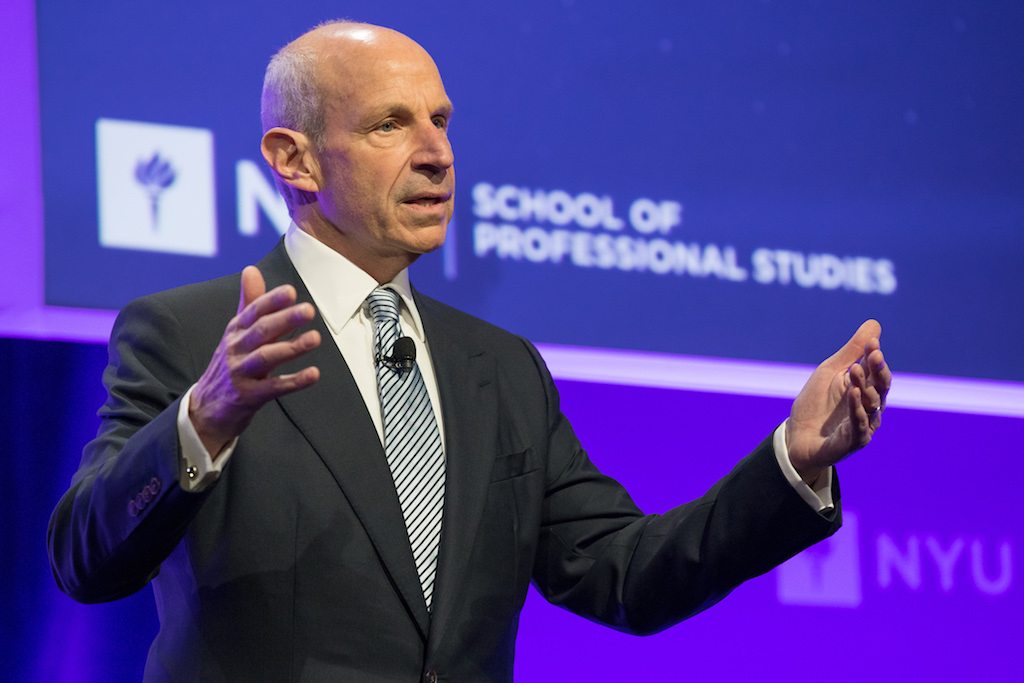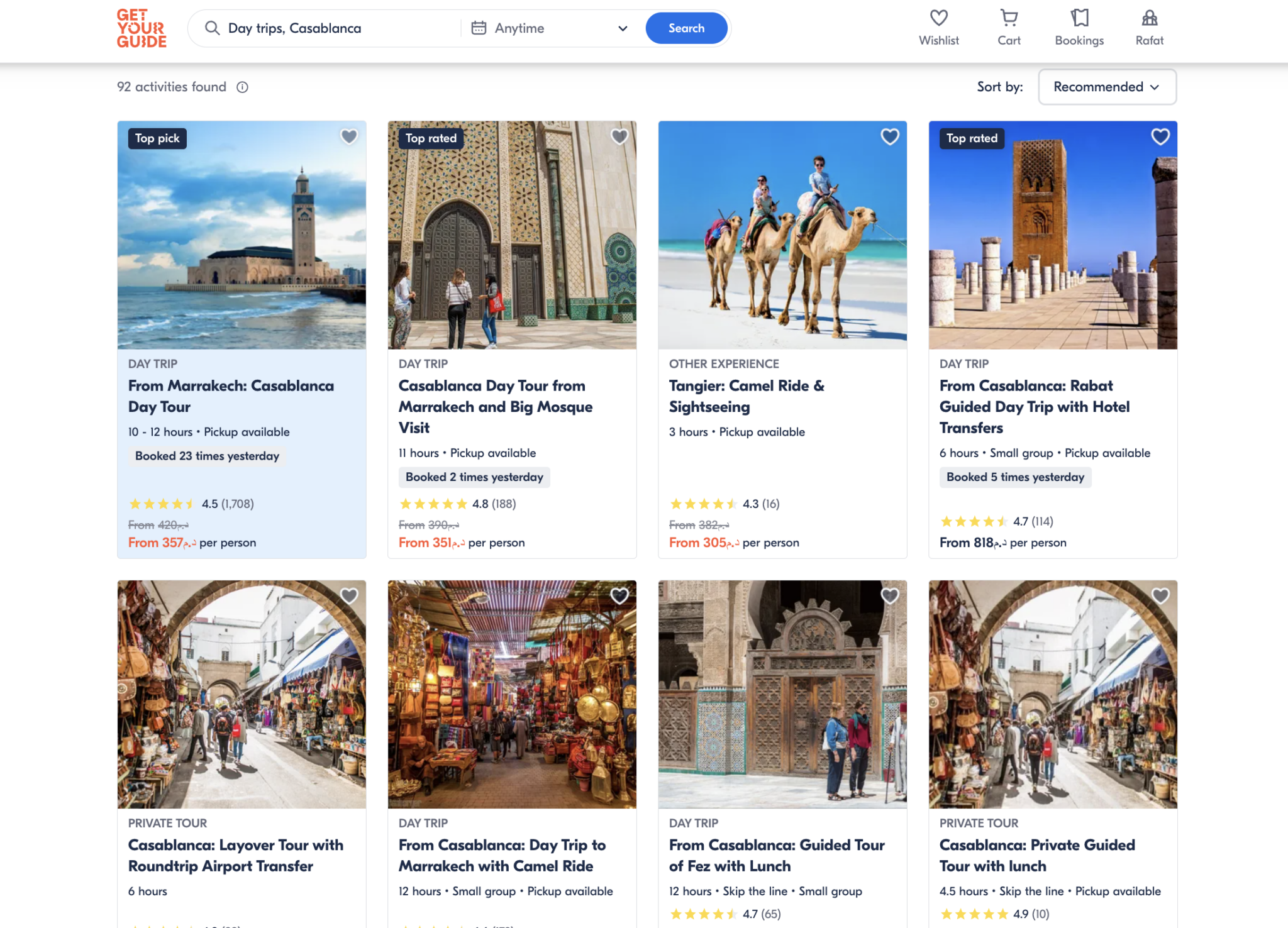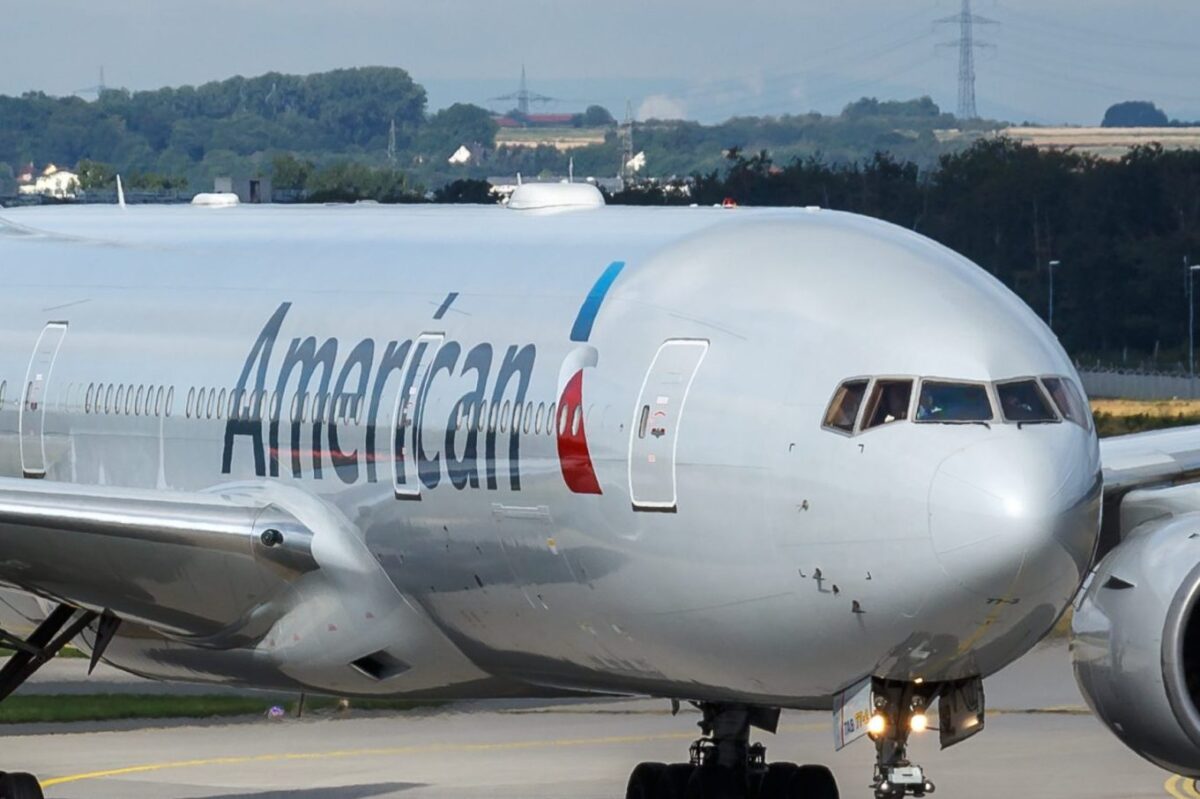Hotel CEOs Push Back Against Trump on Travel Ban, Brand USA and Cuba

Skift Take
Loews Hotels CEO Jonathan Tisch issued an impassioned call for the hospitality industry to rally together to prevent another “lost decade” of travel.
Speaking to an audience of hospitality industry executives at the 39th annual NYU International Hospitality Conference in New York City on June 5, Tisch asked industry leaders to respond to a number of recent initiatives and policies being floated by President Trump including “extreme vetting,” travel bans, and the proposed elimination of Brand USA.
“Ending this 10-year slump required a united industry effort to push for pro-travel policies,” said Tisch, in reference to the more than $600 billion lost in traveler spending and 467,000 jobs lost following the September 11 attacks in 2001. “We learned some valuable lessons that we need to put into action again today.”
No doubt, given the recent terrorist attacks that have taken place in the UK, France and Germany within recent months, there are some parallels between what happened in 2001 and what is taking place right now.
Tisch added that the travel industry generated $246 billion in U.S. exports in 2016, cutting nearly $90 billion off of the country’s trade deficit.
“Travel drives the U.S. economy,” Tisch said. “It’s our job to engage the new leadership in Washington to make sure they understand the role we can play in achieving our shared economic goals. If the Trump administration really wants to cut the trade deficit, they’ll need our help.”
Keeping Brand USA Alive
On the other hand, eliminating Brand USA, the organization tasked with promoting travel to the U.S., would increase the federal deficit by $510 million over the next three years, said Tisch. In its most recent budget proposal, the Trump Administration proposed eliminating Brand USA.
Eliminating Brand USA, Tisch said, “makes no sense on a policy level. It’s completely at odds with the administration’s own economic goals … And by reducing international travel to the U.S., it will also widen America’s trade deficit.”
Marriott International CEO Arne Sorenson echoed Tisch’s comments.
“I was chairman [of Brand USA] until May,” Sorenson said. “Brand USA is only 5 or 6 years old. This is the first time the U.S. has a deliberate effort to market us to the rest of the world,” Sorenson said. “It’s funded by foreign travelers’ visa apps (applications). No U.S. government money or tax revenues are going into this. The impact it has had is significant, with returns to the U.S. economy that are many, many times greater.”
Brand USA gets its funding when partners make contributions and the fees paid by international travelers to the Electronic System for Travel Authorization program, which determines the visa eligibility of travelers from visa waiver countries, are used as matching funds.
He added, “It’s frustrating to see people say, ‘Let’s get rid of it.’ There’s a piece of that which is an old conservative philosophy, which is governments shouldn’t be involved in supporting any kind of business effort. But frustrating to us is that international arrivals to the U.S. support 2.5 million jobs. If we lost that international business we would lose 2.5 million jobs.
“We are one of the most significant industries in terms of exports because people come to the U.S. and they leave their money and then go home. The government should be involved with this very modest support of Brand USA because it promotes the economic growth of the United States. We’re crazy not to recognize the power of the economic growth from tourism and travel.”
Tisch said, “If anyone should understand the value of a brand and the need to market it effectively … it should be Donald Trump.”
Supporting Infrastructure Improvements
One area where Tisch saw some opportunity for the industry was with regard to the Trump Administration’s proposed $1 trillion infrastructure investment program.
“We need to make sure improving our aviation infrastructure — our airports, runways and other essentials — is front and center,” Tisch said. “We can help achieve these goals by making the travel industry a major player in the debate over American infrastructure investment.”
He added, “On the campaign trail, President Trump criticized American airports as ‘third world.’ Now that he’s in the White House, we need to work together to give Americans the airports they deserve. This requires desperately needed capital investment in upgraded runways, gates and terminals to alleviate airport gridlock.”
Tisch said the addition of a satellite-based NextGen air traffic control system alone would reduce delays by 41 percent and create $38 billion in savings by 2020.
Turning Back the Clock on Cuba Travel Restrictions
Should the Trump Administration reverse all agreements signed with Cuba since December 17, 2014, which includes legalized travel in certain categories, hotel CEOs expressed concern, but said it was not as “materially” impactful as other potential travel policy changes being proposed.
However, a recent study from Engage Cuba, a D.C.-based nonprofit, estimated that U.S. airlines and cruise lines could potentially lose an estimated $3.5 billion and more than 10,000 jobs through 2021.
Marriott International inherited Starwood’s Cuba hotel agreements when it acquired the company in September, and currently it is operating one property, a Four Points by Sheraton, and planning to open its second soon.
“There’s obviously nothing about Cuba yet,” Sorenson said. “There’s not much clarity about what needs to happen. It would obviously be frustrating to us if they said, ‘You can’t do business in Cuba.’ It’s not ‘material’ to us in a corporate sense but Cuba is a place Americans would like to go.”
Expedia CEO Dara Khosrowshahi said that “early signs are great” in terms of his company’s business in Cuba but he also noted, “Cuba is an issue but there are much larger issues we are facing as an industry and our coming together and having our voices heard in this administration is vitally important.
“In the last administration, group efforts were bumpy. It took a bunch of effort from folks in this room, and the U.S. Travel Association to get our voices heard. Travel is a very strong economic driver. More and more of our GDP is going to travel. I think that our voices need to get louder and louder in order to protect our customers and protect our industry.”
For Sebastien Bazin, AccorHotels CEO, Cuba is important, but its scope and size doesn’t make it as large a market as other regions where he’s seeing tremendous opportunity for growth and development.
“Cuba is a wonderful destination but let’s not kill ourselves; it doesn’t have the same size or capacity you can find in Asia-Pacific or Africa,” Bazin said. “For Accor, we have three properties [in Cuba], and we may open up another 10. It’s a wonderful destination. Great culture. Great people. But you’re dealing with the same ownership and same people so it’s tough. It’s a place where you have to spend time in order to get comfortable.”
Likewise, Mark Hoplamazian, CEO of Hyatt Hotels, said that his company is seeking to have properties there but the market can be challenging.
“We’re in active discussions to find an opportunity or two that we can begin with. It’s not an easy process, but we’re committed to figuring out a way to do that. I don’t think we’re late in any way. The market is just evolving really slowly at this point.”
He added, “The tether to the U.S. is palpably strong and widespread. I agree with how Sebastien characterized it. It has tremendous headline appeal. Especially in the United States it’s got this mythical existence as this thing from yesteryear … but in reality it’s a relatively modest market. It’s a very attractive market. It’s not that one that we want to ignore. My observation is that the market there is 100 percent inbound.”
A Call to Action
Tisch ended his opening remarks by imploring the industry to work with policymakers in Washington, voice their support of improved infrastructure improvements, and support Brand USA.
“For years and years, we fought hard to get a seat at the table,” Tisch said. “Now it’s time to use our position: To protect the gains we’ve made. To seize the opportunities that lie ahead. And to launch travel on its next phase of growth.”




